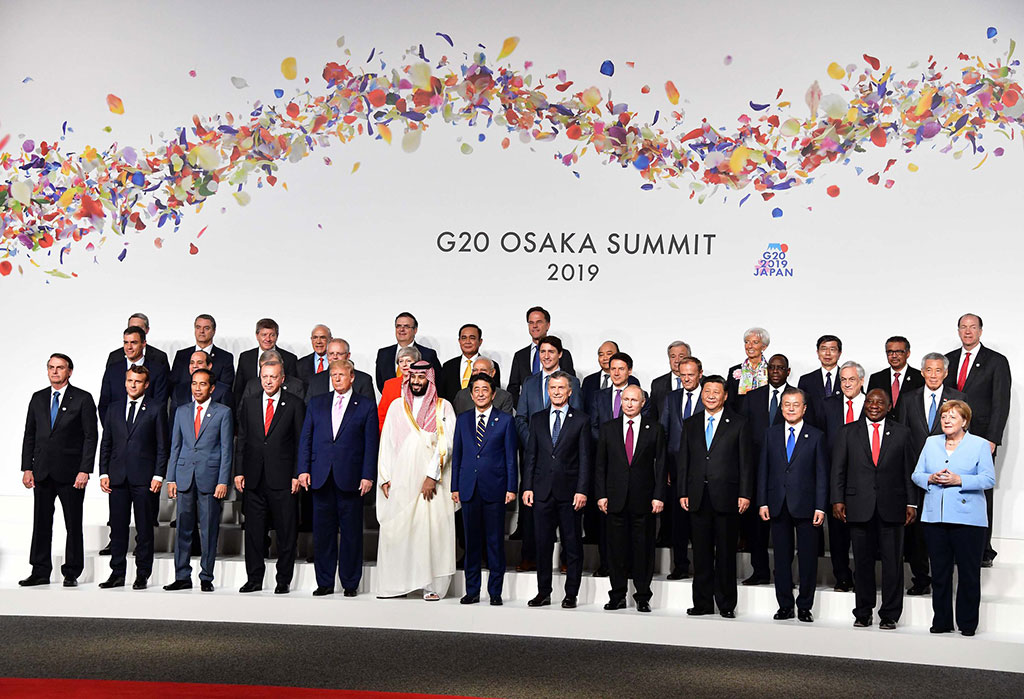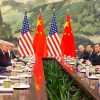
In Osaka, the meeting between Donald Trump and Xi Jinping and the summit proper of the G20 leaders averted catastrophe, but still a number of swords of Damocles dangle over a world that is becoming more fragmented, and not only because of the clash between the US and China. For the time being, Trump is holding fire on some technological sanctions (Huawei) and will refrain from imposing new tariffs on China while both countries negotiate, although he will maintain those he had already decided on. At least 5G did not paralyse the G20, with other factors at play. But there is a definite rift between the two powers. Beijing has stopped trusting the US and will keep moving on towards a reduced technological dependence on what is still the greatest superpower in this domain. As Alicia García-Herrero pointed out in a recent Debate Elcano, ‘China has awoken the hegemon, and the hegemon has awoken China’.
The G20 –which in 2008-09 became a critical body for coordinating fiscal and economic policies, alongside the joint efforts of the governors of the main central banks– has lost effectiveness. In their Osaka declaration, the assembled leaders warn of the risks besetting the global economy, on the cusp of a downward turn, but they do little to put things to right. Unlike when these summits began, national and regional interests now diverge.
As a forum for debate the G20 continues to be important, in terms of its summits, its various ministerial meetings and the processes of drawing up communiqués, which continue breaking new ground and creating a common culture. One example, under the current Japanese presidency, is the impact of ageing on many societies, and the calls (policies are rather a different matter) for the current technological revolution to foster progress, inclusivity and the establishment of decent jobs, something the Japanese refer to as Society 5.0. The problem of inequality has gone global.
As far as the environment and the fight against climate change is concerned, it is important that all participants, barring the US with its special paragraph, supported the ‘irreversibility’ of the Paris Agreement. Trump, in his paragraph in the declaration, continues to maintain that he withdrew from it ‘because it disadvantages American workers and taxpayers’. The agreement may make headway without the US, but with the support of many American power centres (individual cities, states, etc).
In matters of trade, wars are still being waged, albeit with the use of more moderate language, with all the leaders declaring themselves in favour of a ‘free, fair, non-discriminatory, transparent, predictable and stable trade and investment environment’ and wanting to ‘keep our markets open’, but attended by a surfeit of uncertainties. Such words can take on very different meanings depending on who is interpreting them. One point of convergence between Trump and the rest of the world could be the long-overdue reform of the World Trade Organisation (WTO), although in this regard it is not a case of the world against the US, because Europe and China, among others, also fail to see eye to eye.
But while the issue of trade was dodged in Osaka, other steps are being taken elsewhere in the world, such as the agreement between the EU and Mercosur announced at the same time, which has been 20 years in the making due to the costs it represented for some sectors. Spain has been one of its key promotors. It is also a reaction to Trump’s protectionism. And if one adds the recent agreements between the EU and Canada, and the EU and Japan, and the fact that Tokyo was able to rescue the Trans-Pacific Partnership (from which Trump also withdrew), it may be said that in the midst of the storm there are stabilising factors.
The G20 is addressing issues that did not exist a year ago. One that has been tabled by Japan is the proposal to have a global flow of ‘data, information, ideas and knowledge’ accompanied by ‘trust’, something that lies at the basis of artificial intelligence and the current digitalised global economy. But for one thing it will not necessarily be an unconstrained flow. For another, India, together with South Africa and Indonesia, have refused to support the launch of the ‘Osaka Track’, a framework for promoting the flow of data across borders, which the Japanese Prime Minister, Shinzo Abe, launched at the start of the leaders’ summit. The Internet is also being compartmentalised. On the issue of data, the EU, and even its individual member states internally, are far from being unanimous on many aspects. The technological revolution, which seemed as though it was going to flatten the earth with its flows of data, has its own topography and walls. The world’s fragmentation is also about bits.


